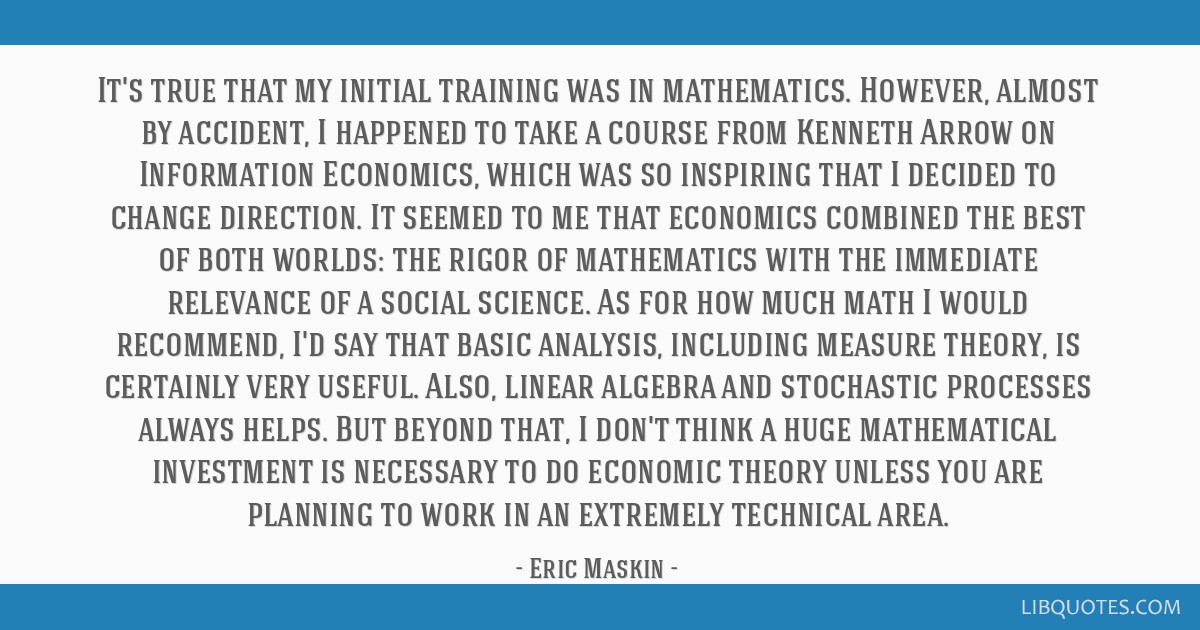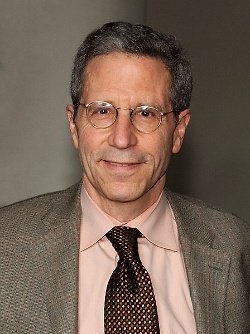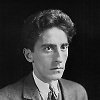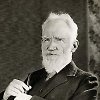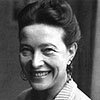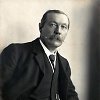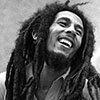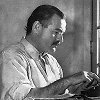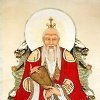It's true that my initial training was in mathematics. However, almost by accident, I happened to take a course from Kenneth Arrow on Information Economics, which was so inspiring that I decided to change direction. It seemed to me that economics combined the best of both worlds: the rigor of mathematics with the immediate relevance of a social science. As for how much math I would recommend, I'd say that basic analysis, including measure theory, is certainly very useful. Also, linear algebra and stochastic processes always helps. But beyond that, I don't think a huge mathematical investment is necessary to do economic theory unless you are planning to work in an extremely technical area.
"Interview with Eric S. Maskin: Questions by TSE students" at tseconomist.com, 04/07/2013; In answer to the question of why he decided to become an economist.
